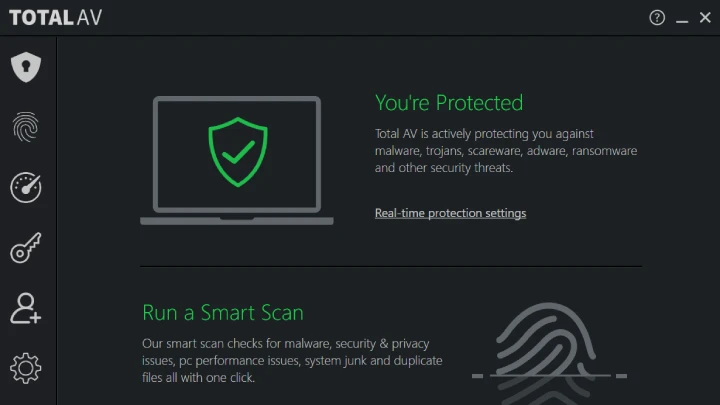
Detect & Remove Rootkits with MalwareFox: Advanced Cybersecurity Protection Tools

Detect & Remove Rootkits with MalwareFox: Advanced Cybersecurity Protection Tools
Disclaimer: This post includes affiliate links
If you click on a link and make a purchase, I may receive a commission at no extra cost to you.
MalwareFox Rootkit Removal Tool
Removes sneakiest rootkits from BIOS before they take control!


Cleans Computer
MalwareFox scans your system for all kinds of rootkits using its cloud-based rootkit sample library. It then removes them all along with the other viruses/trojans (if any).

Prevents Data Theft
Advance rootkits such as keyloggers can actually track every single word you type in web-browsers or local programs, including your sensitive banking information and login credentials. MalwareFox can detect and remove these programs before you accidentally disclose your private data.

Speeds up Performance
Rootkits can be extremely resource-hungry and affect system performance. So, their removal can put issues like screen freezes, or low data transfer rates to an end.
Rootkit Removal tool works on Windows / Mac / Android / iPhone / iPad
How Rootkit Removal Works?

Cleans up your computer from rootkit infection in just four simple steps.

What is Rootkit?
A rootkit is a malware designed to hide in your computer and cause harm by staying under the radar. “Root” comes from the administrator account on Linux systems which allows root-level changes, i.e. command of the core processes of the computer system. “Kit” refers to the collection of programs that can be used to access this account.
A rootkit is essentially a stealth malware. So, it stays inside computer system undetected and serves as a backdoor for the hacker . It can be used to steal or modify your personal files, change the login credentials, install and conceal other types of malware on your computer, etc.
Where do Rootkits come From?
Rootkits can intrude your computer through the same channels as the other types of malware. Examples include malicious emails, instant messages, illegal websites, etc. You can also accidentally download them on your system by installing software from unofficial sources, or by installing pirated software. This is because many times such software are tampered with and when you install the actual software, you also install a rootkit without knowing.


How to Recognize Rootkit?
Rootkits are more dangerous than other malware because they are engineered to observe a furtive behaviour, an otherwise herculean task made easy by obtaining access to the system files and system settings.
Rootkits can remain undetected for weeks or even months. Since they load before the actual OS boots, they can modify the system to suit their requirements easily.
While the standard malware programs make themselves apparent by corrupting or locking your files or showing unrecognized ads in your web browser, etc. a rootkit requires a high level of attention for you to detect them.
One tell-tale sign of a rootkit infection, however, is that any antivirus program that is currently running on your system is disabled for no particular reason. This is actually a defence mechanism triggered by a rootkit so that it’s not identified as a threat by your computer.
Another common symptom is when the computer settings such as date/time, etc. change all of a sudden, or unfamiliar programs are installed on your system (identified through new shortcuts on the desktop, programs pinned to the taskbar), etc.
How to Remove Rootkit?
As mentioned above, a rootkit is more powerful than most malware programs today because it can exploit high level of controls i.e. administrator privileges. However, there are many things you can do to get rid of it.
One way to remove rootkit is to update your antivirus program (you may need to activate it first if it’s disabled by the rootkit itself) and then run a deep scan. You can also check the list of programs installed on the computer and uninstall the ones you don’t recognize.

Some programs may not be listed in the control panel. However, you can find these by opening task manager and checking for the suspicious programs that are running in real-time.
The ideal way to get rid of rootkit completely and in the simplest manner possible is to use a specialized software program such as the Rootkit Remover by MalwareFox. It’s designed to identify and remove all kinds of rootkits and also close the backdoors that hackers might be using to access your computer. Its database is also updated regularly for maximum protection.

How to Protect from Rootkit?
You can protect your computer from rootkits by avoiding opening suspicious emails or other forms of text messages, especially the ones that ask you to open a link, installing software only from reliable sources, keeping your antivirus programs and OS up to date, etc.
A real-time protection service such as MalwareFox can offer an additional layer of protection that makes rootkit intrusion extremely difficult.
Also read:
- [New] In 2024, Prime Picks of YouTube's Snackable Shorter Videos (FREE)
- [New] The Science Behind Optimal Instagram Timings for 2024
- 2024 Approved Unmatched Upticks Celebrating Top 10 Reddit Discussions
- Alternative Methods for Transferring Data From a HDD to SSD with Clonezilla and More Options
- Automatiser Les Sauvegardes Sous Windows # Revised Problem
- Choosing the Best Option: When to Engage ChatGPT for Psychological Support
- In 2024, 8 Ways to Transfer Photos from OnePlus Nord N30 SE to iPhone Easily | Dr.fone
- Procedure Dettagliata per Ripristinare Windows Server 지원 2008 R2 on Previous Data Points
- Tout Savoir Pour Envoyer Des Photos D'iPhone Vers Un Ordinateur en Utilisant La Technologie Bluetooth
- Überwindung Der Hürde: Sicherstellen, Dass Hohe Auflösungs-iPhone-Filme Auch Auf Desktop-Computern Klar Sichtbar Sind
- WebM Conversão Gratuita Ao Vivo: Guia Detalhado Do Conversor De WMV Para WebM Da MediaConvertPro
- Title: Detect & Remove Rootkits with MalwareFox: Advanced Cybersecurity Protection Tools
- Author: Richard
- Created at : 2024-11-25 17:16:22
- Updated at : 2024-11-26 17:28:22
- Link: https://win-reviews.techidaily.com/detect-and-remove-rootkits-with-malwarefox-advanced-cybersecurity-protection-tools/
- License: This work is licensed under CC BY-NC-SA 4.0.